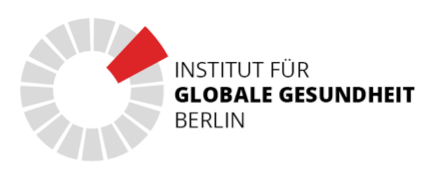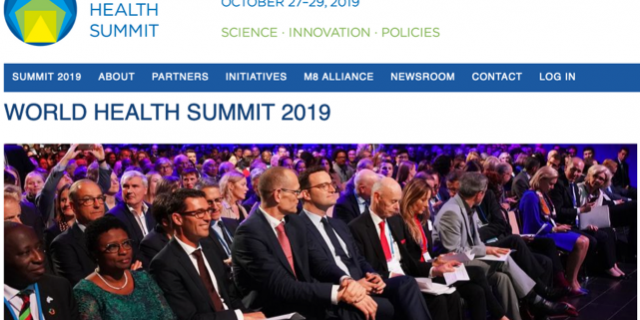Has World Health finally reached its Summit?
With more than 2500 participants, 300 speakers, including 20 ministers of health and the „who is who“-list in Global Health, the 11th World Health Summit (WHS) in Berlin has reached new heights. Even WHO´s Director General, Dr. Tedros Adhanom Ghebreyesus, has now dedicated himself to become a WHS patron, a position he is sharing with the German Chancellor Angela Merkel, French President Emmanuel Macron and the EU Commission President Jean-Claude Juncker. This illustrious group of world leaders clearly indicates the Summit´s global recognition. And with the Karolinska Institute from Sweden and the George Washington University as well as the Consortium of Universities for Global Health from the USA three prestigious institutions have now joined the M8 Alliance, further strengthening the WHS´academic backbone.
A wide range of issues such as the impact of climate change on health, health systems strengthening, antimicrobial resistance, digital health and the implementation of the Sustainable Development Goals were discussed. This „fruit salad“ mixture of discussion items, attendees and networking opportunities appears to be one of the WHS´s success factors. Special programmes supporting the next generation such as the New Voices in Global Health or the Young Physician leaders programme have also proven to be of great value. The global outreach of the WHS through its annual Regional meetings, the next one being organized by Makerere University in Kampala, Uganda in 2020, has also been a very important step forward in the history of the WHS.
What about the results? Well, the multitude of themes discussed by a multidisciplinary group of people from more than 100 countries, allows multiple answers to this question: Health is a human right and a political choice. Climate change is affecting our environment and human health. Providing Universal Health Coverage, strengthening health systems and primary health care, are essential to reaching the health-related SDGs. These must be supported by the digital transformation, offering a wide range of opportunities not only to reduce inequalities, but also to reach the goal of health for all. Another key message was emphasized by Dr Tedros: „Multilateral action is not only an option, it is the only option!“
As I was involved in the organization of the WHS in its initial years myself, I am very pleased to see that the Summit has really been shaped by its participants over the years. It is now a unique and important networking forum to exchange ideas, to highlight important aspects and to discuss the current and future issues on the global health agenda. Can the Summit achieve even more? Certainly, but it will depend on all stakeholders involved. Multidisciplinary expert commissions could be created, and all participants could be directly involved in the proceedings, e.g. by using digital solutions. At the end of the day, the participants are those responsible for creating the momentum and for taking home the important messages to generate the real impact on the ground – before returning to the next Summit again.
(A commentary by Mathias Bonk)

